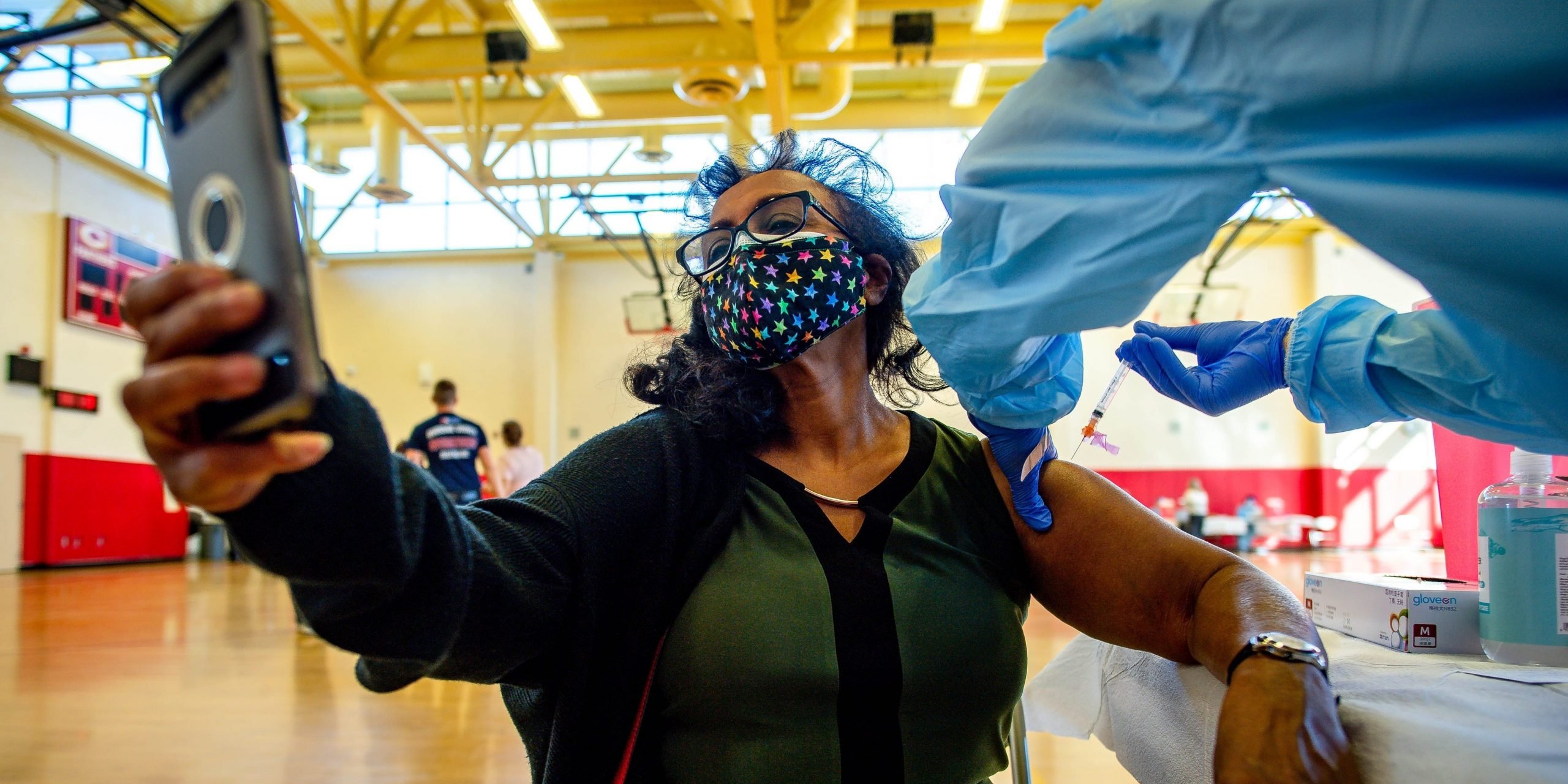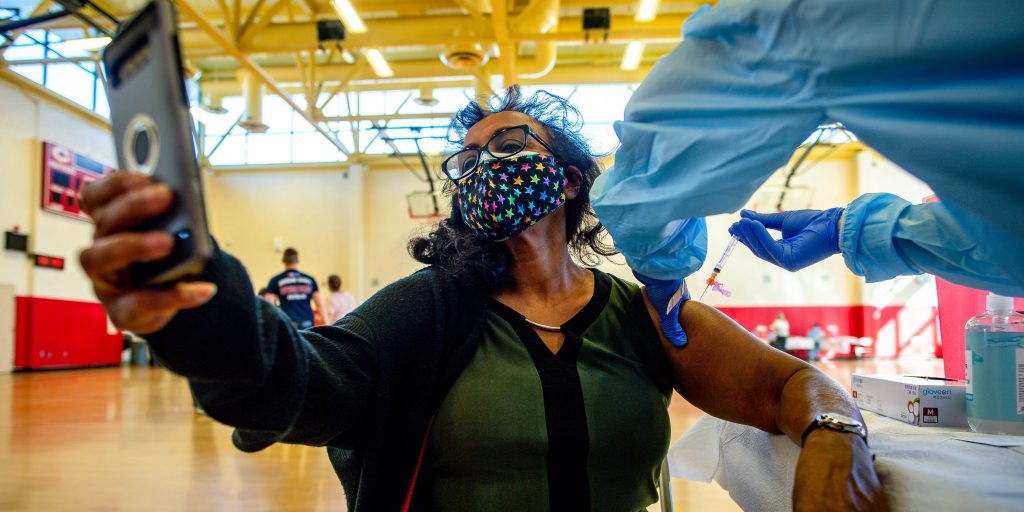
Watchara Phomicinda/MediaNews Group/The Press-Enterprise/Getty Images
- Vaccinated people should still socially distance and wear masks in public, WHO's Europe head said.
- It was a departure from CDC guidance, which said fully vaxxed people didn't need masks in most settings.
- Hans Kluge also said people should "rethink or avoid" international travel.
- See more stories on Insider's business page.
Fully vaccinated people should still wear a mask and socially distance in public, the World Health Organization's Europe director said Thursday.
The remarks came in contrast to the May 13 updated guidance from the US Centers for Disease Control and Prevention, which said that fully vaccinated people can drop their masks in most settings, indoor or outdoor.
"Neither testing nor receiving vaccines is a substitute for adherence to measures such as physical distancing and mask wearing in public spaces or healthcare settings," Hans Kluge, WHO Region Director for Europe, told a press conference on Thursday.
"Most of us are still susceptible to the virus and not vaccinated yet," he said.
Kluge also said that people should "rethink or avoid" international travel.
That guidance came as a departure from the position of the European Union, which on Wednesday backed a proposal to let fully vaccinated people from "safe countries" enter the block for nonessential travel.
Cases in the WHO European region, which includes 54 countries and is wider than the European Union, have fallen by 60% in the past month, Kluge said.
But that progress is "fragile," he said.
The B.1.617 coronavirus variant, which was first seen in India, is spreading rapidly in the European region and could displace the B.1.1.7 variant which is currently dominant in Europe, Kluge said at the briefing.
"Most cases have a link to international travel," though onward transmission has also been seen, Kluge said.
He also said that approved coronavirus vaccines are effective against all the known variants, including the variant first found in India. He did not specify whether he meant vaccines approved by the WHO or vaccines approved by the European Medicines Agency.
The WHO has given authorization to the Pfizer, AstraZeneca, Johnson & Johnson, Moderna, and Sinopharm vaccines.
On Tuesday, Dr. Anthony Fauci, the top US infectious-diseases expert, also said that studies were "very encouraging" that vaccines approved in the US are effective against all the known variants.
Only 23% of people in the European region have had a single dose of vaccine and 11% have completed a vaccine series, Kluge said.
